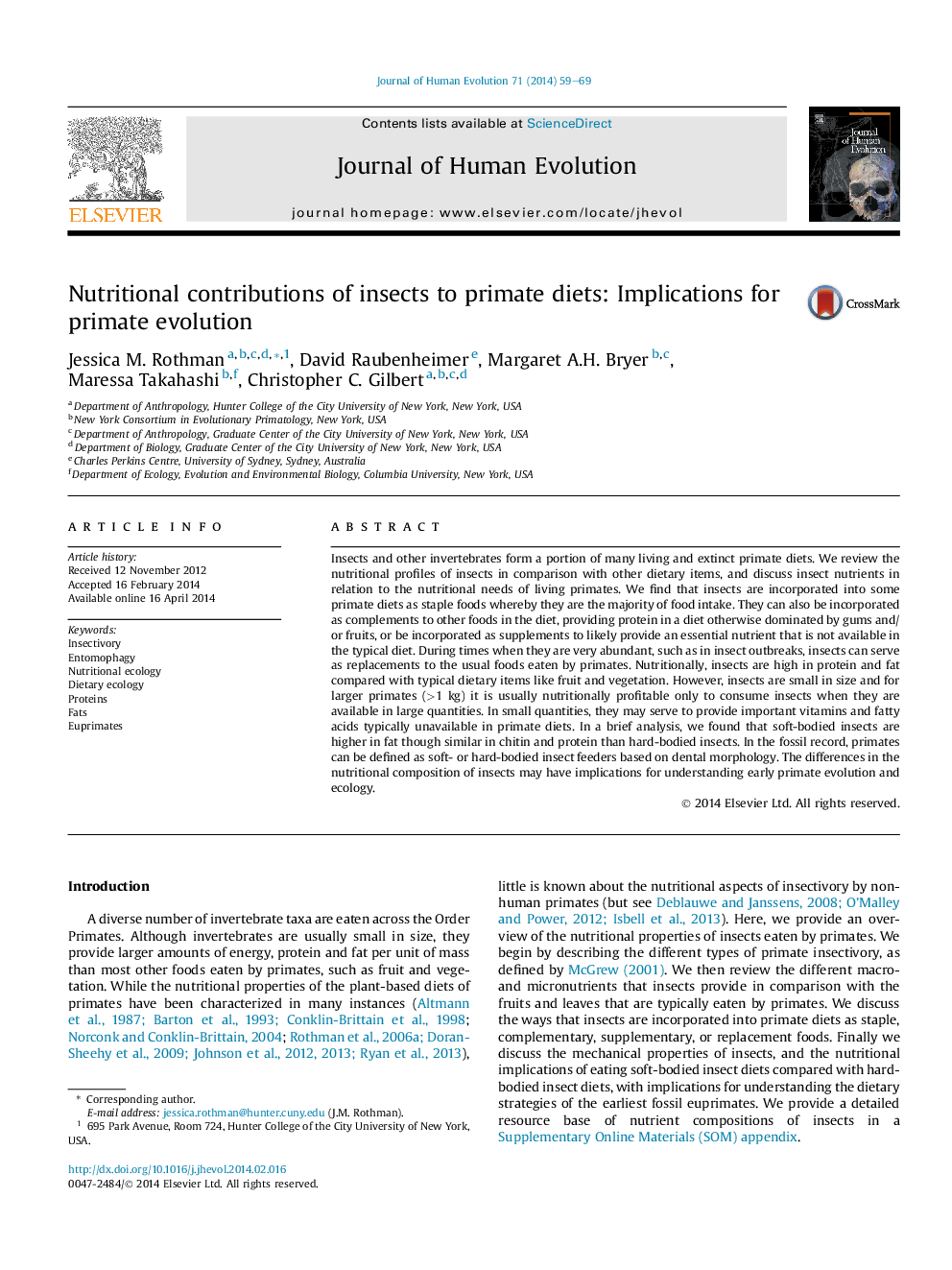| کد مقاله | کد نشریه | سال انتشار | مقاله انگلیسی | نسخه تمام متن |
|---|---|---|---|---|
| 4556051 | 1628178 | 2014 | 11 صفحه PDF | دانلود رایگان |
Insects and other invertebrates form a portion of many living and extinct primate diets. We review the nutritional profiles of insects in comparison with other dietary items, and discuss insect nutrients in relation to the nutritional needs of living primates. We find that insects are incorporated into some primate diets as staple foods whereby they are the majority of food intake. They can also be incorporated as complements to other foods in the diet, providing protein in a diet otherwise dominated by gums and/or fruits, or be incorporated as supplements to likely provide an essential nutrient that is not available in the typical diet. During times when they are very abundant, such as in insect outbreaks, insects can serve as replacements to the usual foods eaten by primates. Nutritionally, insects are high in protein and fat compared with typical dietary items like fruit and vegetation. However, insects are small in size and for larger primates (>1 kg) it is usually nutritionally profitable only to consume insects when they are available in large quantities. In small quantities, they may serve to provide important vitamins and fatty acids typically unavailable in primate diets. In a brief analysis, we found that soft-bodied insects are higher in fat though similar in chitin and protein than hard-bodied insects. In the fossil record, primates can be defined as soft- or hard-bodied insect feeders based on dental morphology. The differences in the nutritional composition of insects may have implications for understanding early primate evolution and ecology.
Journal: Journal of Human Evolution - Volume 71, June 2014, Pages 59–69
